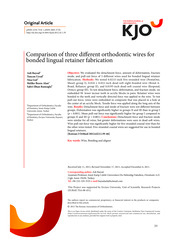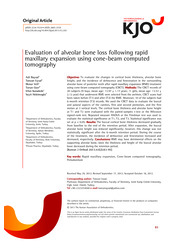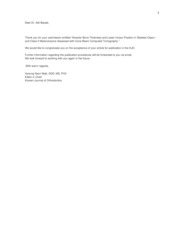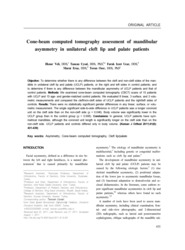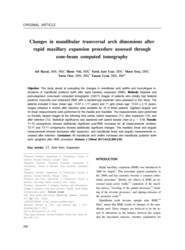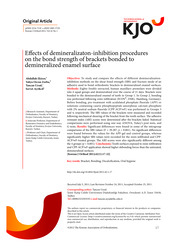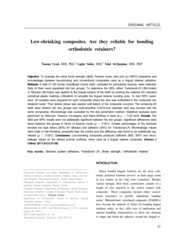Filtreler
Filtreler
Bulunan: 7 Adet 0.000 sn
Tür : Makale ✕Yayıncı : The Korean Associati ... ✕Koleksiyon : FAKÜLTELER ✕Koleksiyon : FAKÜLTELER ✕Koleksiyon : FAKÜLTELER ✕Tam Metin : var ✕
Koleksiyon [4]
İlgili Araştırmacılar [4]
Ambargo Durumu [1]
Tam Metin [1]
Eser Sahibi [4]
Tür [1]
Yayıncı [1]
Kayıt Giriş Tarihi [4]
Yayın Dili [1]
Konu Başlıkları [20]
- 3 Dimensional diagnosis and treatment planning 1
- Arch form 1
- Asymmetry 1
- Bonding 1
- Bonding and aligner 1
- Bracket 1
- CT 1
- Class II 1
- Cleft lip/palate 1
- Cone Beam Computed Tomography 1
- Cone-beam computed tomography 1
- Decalcifi cation 1
- Expansion 1
- Oral hygiene 1
- Orthodontic retainer 1
- Periodontium 1
- Rapid maxillary expansion 1
- Shear strength 1
- Silorane system adhesive 1
- Transbond LR 1 Daha fazlası Daha az
